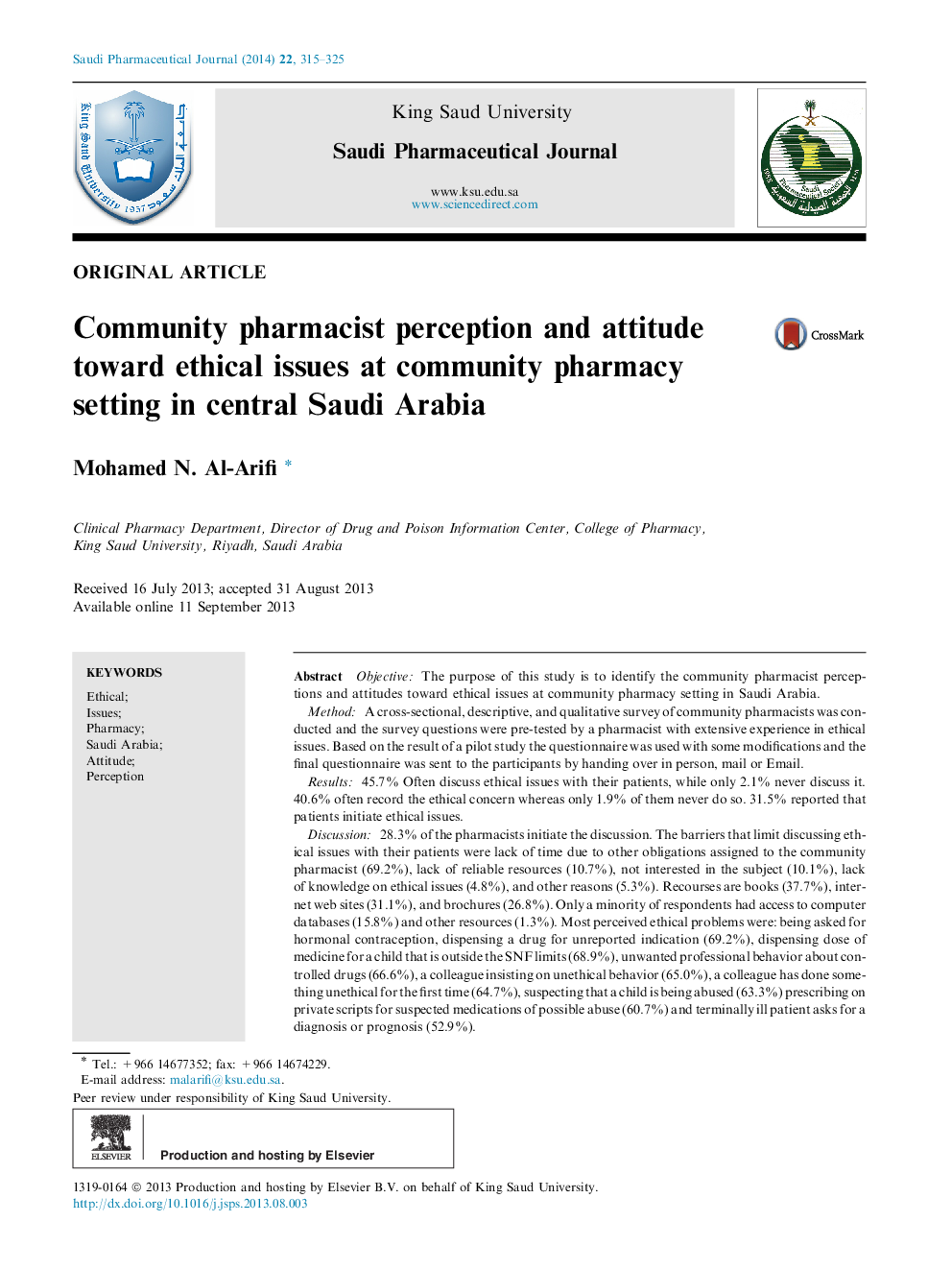| کد مقاله | کد نشریه | سال انتشار | مقاله انگلیسی | نسخه تمام متن |
|---|---|---|---|---|
| 2509362 | 1117661 | 2014 | 11 صفحه PDF | دانلود رایگان |
ObjectiveThe purpose of this study is to identify the community pharmacist perceptions and attitudes toward ethical issues at community pharmacy setting in Saudi Arabia.MethodA cross-sectional, descriptive, and qualitative survey of community pharmacists was conducted and the survey questions were pre-tested by a pharmacist with extensive experience in ethical issues. Based on the result of a pilot study the questionnaire was used with some modifications and the final questionnaire was sent to the participants by handing over in person, mail or Email.Results45.7% Often discuss ethical issues with their patients, while only 2.1% never discuss it. 40.6% often record the ethical concern whereas only 1.9% of them never do so. 31.5% reported that patients initiate ethical issues.Discussion28.3% of the pharmacists initiate the discussion. The barriers that limit discussing ethical issues with their patients were lack of time due to other obligations assigned to the community pharmacist (69.2%), lack of reliable resources (10.7%), not interested in the subject (10.1%), lack of knowledge on ethical issues (4.8%), and other reasons (5.3%). Recourses are books (37.7%), internet web sites (31.1%), and brochures (26.8%). Only a minority of respondents had access to computer databases (15.8%) and other resources (1.3%). Most perceived ethical problems were: being asked for hormonal contraception, dispensing a drug for unreported indication (69.2%), dispensing dose of medicine for a child that is outside the SNF limits (68.9%), unwanted professional behavior about controlled drugs (66.6%), a colleague insisting on unethical behavior (65.0%), a colleague has done something unethical for the first time (64.7%), suspecting that a child is being abused (63.3%) prescribing on private scripts for suspected medications of possible abuse (60.7%) and terminally ill patient asks for a diagnosis or prognosis (52.9%).ConclusionThe findings of this study assured the need of Saudi health authorities to implement a code of ethics for pharmacy practicing to cover all aspects of ethical issues.
Journal: Saudi Pharmaceutical Journal - Volume 22, Issue 4, September 2014, Pages 315–325
